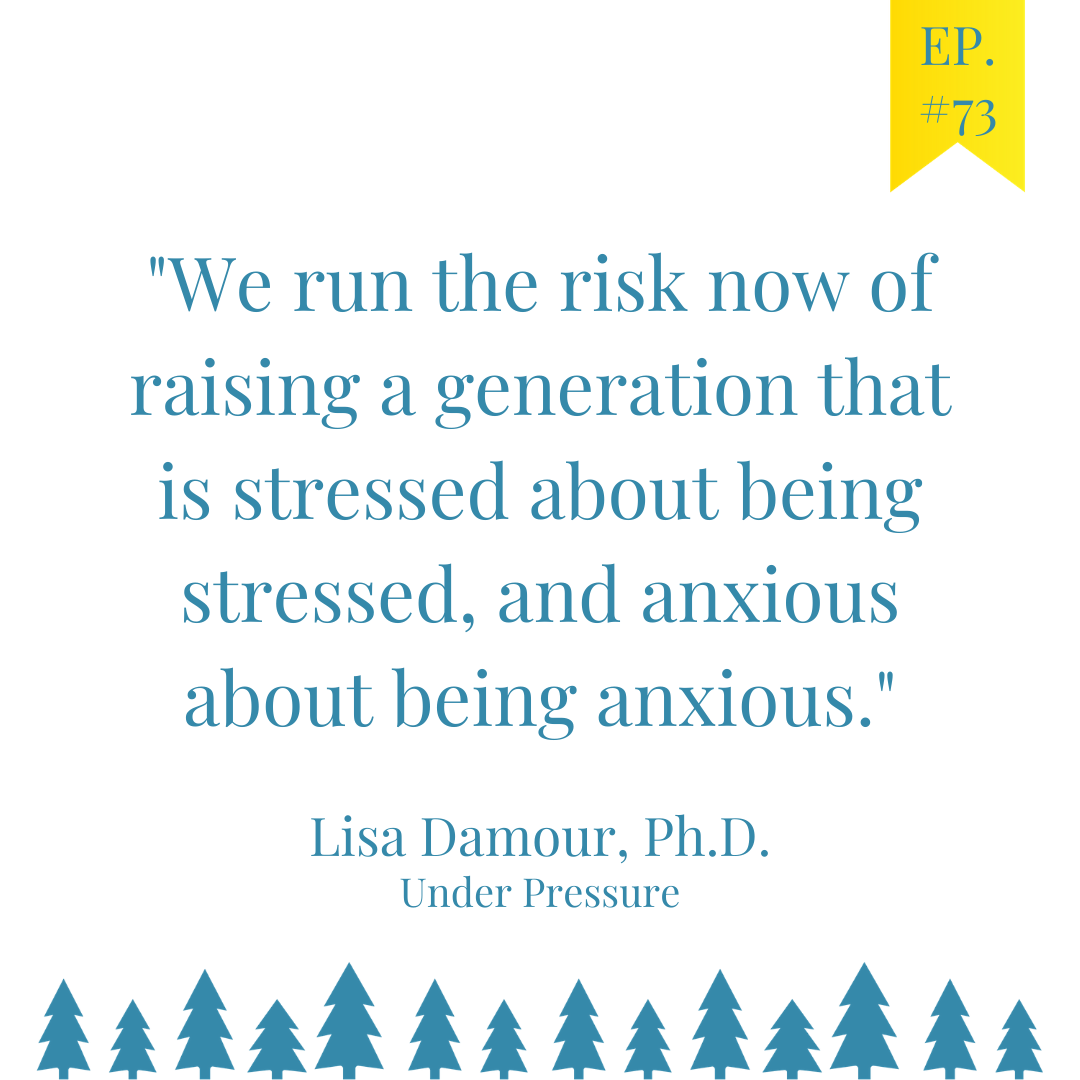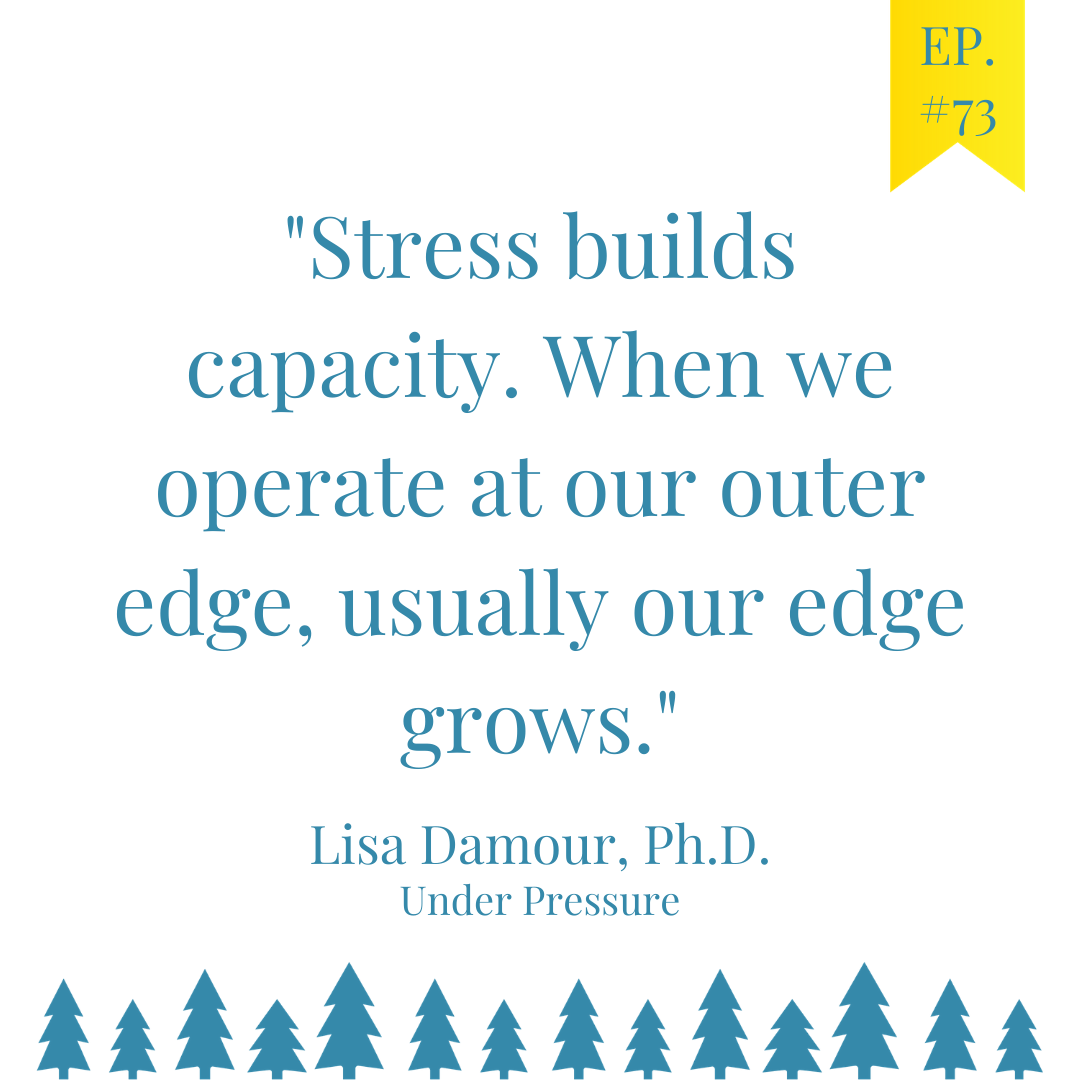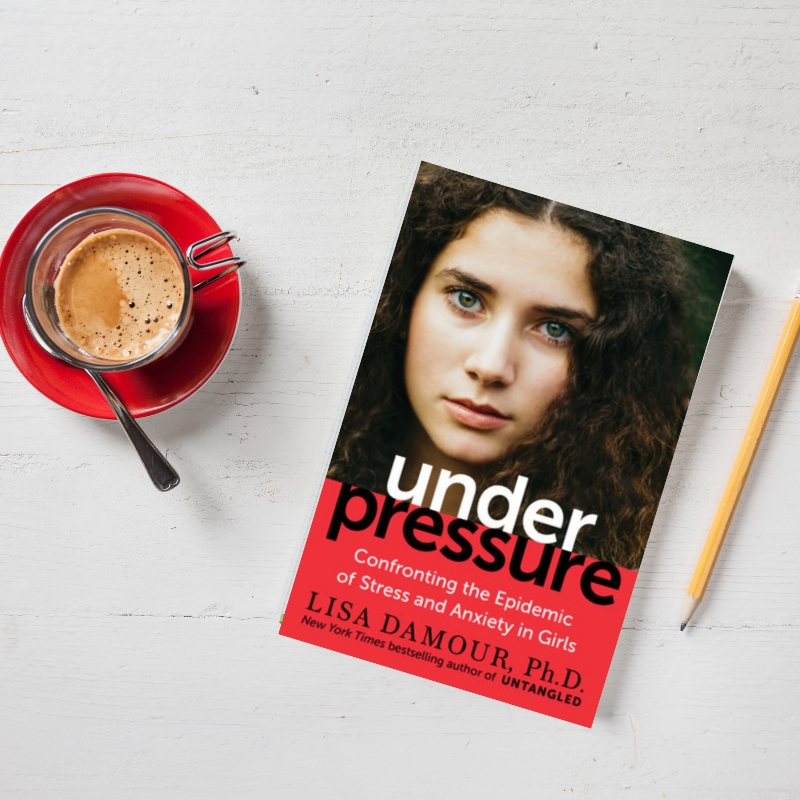Feb 8, 2019
That was my aim in writing the
book- was both to offer reassurance, and then practical
strategies
for managing the stress and anxiety that will, invariably, come
up.
-Lisa Damour
In episode 73, I'm chatting with Lisa Damour, Ph.D., the New York Times best-selling author of Untangled- Guiding Teenage Girls Through the Seven Transitions Into Adulthood.
In this episode, we talk about Under Pressure- Confronting The Epidemic of Stress and Anxiety in Girls.
Lisa is a clinical psychologist, in private practice. She shares some really encouraging insights about reframing the way that we think about stress and anxiety in ourselves and in our daughters and she also discusses ways that we can help ease the anxiety levels of our girls at home, at school, and in their social lives.
Big ideas
- Both stress and anxiety are normal and healthy functions that are actually beneficial to us.
- Anxiety is a normal system that keeps us safe. It's an alarm that alerts us to pay attention and notice what's going on around us, or inside of us.
- Stress builds capacity, so when we operate at our outer edge, that edge usually grows and we develop new abilities.
 Quotes
Quotes
Audrey: "You have a great way of synthesizing the information and I think that's why people find your books so helpful. You have taken all this deep, heavy stuff about what's going on, and really put it down to the very simple to understand terms for those of us who work with girls, or have daughters."
Audrey: "I think a lot of times parents are feeling stressed themselves about what to do and how to parent, and I think what your book provides is a sense of relief and encouragement that there are these things going on and yes, anxiety is a big issue, however, there are all these things that we can do, in different areas, to relieve some of that."
Lisa: " The bottom line is that psychologists understand, and have long understood, that stress and anxiety are both normal and healthy functions. They both can reach troublesome degrees, and even when they do, we're really good at treating them. But, stress and anxiety are part of life, so stress is what happens when we operate at the edge of our capacities- any time that we take on something that requires us to adapt, to stretch, to grow, we will feel stressed by it."
Lisa: "Anxiety is a normal system that keeps us safe. It's an alarm that alerts us to pay attention, to notice what's going on around us- or going on inside of us."
Lisa: "Stress builds capacity. When we operate at our outer edge, usually our edge grows. We develop new abilities we didn't know we had."
Lisa: "The kinds of principles I'm putting forward in here- these are well-established, very long-standing, fully understood beliefs in psychology that somehow became divorced from where the popular culture is now, which is the sense that all anxiety is troublesome, and all stress is pathological and we need to get rid of both."
Lisa: "We run the risk now of raising a generation that is stressed about being stressed, and anxious about being anxious."
Audrey: "The message that I got is that one way to ease the anxiety is to normalize it and explain that, even as adults, we have it too."
Lisa: "That was my aim in writing the book- was both to offer reassurance, and then practical strategies for managing the stress and anxiety that will, invariably, come up."
Lisa: "Most feelings will run their course."

Lisa: "They (parents) have a lot of power and a lot of say and can make things go quite a bit more smoothly for their daughter, even under difficult conditions, if they can both validate, but not overreact at the same time."
Audrey: "The end goal is for our kids to be able to live as functioning adults, on their own, separate from us, and not to needing to ask us about how to handle every little thing."
Lisa: "The happiest girls have one or two friends, and our job, as adults, is to help them feel better about that."
Lisa: "A thread that runs through the whole book is for me to kind of grapple with really well-meaning guidance that adults give, that in my experience, does not actually work all that well for girls... is our guidance around how they negotiate, what they do and don't want to do in romantic settings- when things get physical."
Lisa: "We have to be mindful that there's a couple of scenarios that are highly likely to make it very, very hard for girls to follow our advice."
Lisa: "We have to equip her for other possibilities- which are probably more likely."
Audrey: "Enthusiastic agreement is what we want our daughters to be feeling before they're doing something."
Lisa: "I think it is so good for girls to be in new settings, especially in settings where the technology goes away, to let their hair down, to get to explore sides of themselves that may not come up in their day-to-day at home."
Lisa: "I've watched kids who are really struggling socially come back to school after a summer camp and just have a whole new repertoire of social skills that they never could have developed if they had stayed in their exact same social track with their friends at school."
Highlight from Under Pressure- Confronting The Epidemic of
Stress and Anxiety in Girls:
"Much of what our girls learn about how to manage stress comes from
observing how we manage it, as parents. Our daughters watch us for
cues about how alarmed they should be by life's difficulties. When
we let our own inner Chicken Little take over, and panic in the
face of manageable challenges, we set a bad example. When we accept
that stress often leads to growth, and help our girls do the same,
we create a self-fulfilling prophecy for ourselves and for our
daughters."
About Lisa
Lisa Damour writes the monthly Adolescence column for the New York Times, serves as a regular contributor to CBS News, maintains a private psychotherapy practice, consults and speaks internationally, is a Senior Advisor to the Schubert Center for Child Studies at Case Western Reserve University, and serves as the Executive Director of Laurel School’s Center for Research on Girls.
Dr. Damour has written numerous academic papers, chapters, and books related to education and child development. She is also the author of two New York Times best selling books, Untangled: Guiding Teenage Girls Through the Seven Transitions into Adulthood and Under Pressure: Confronting the Epidemic of Stress and Anxiety in Girls.
Dr. Damour graduated with honors from Yale University and worked for the Yale Child Study Center before earning her doctorate in Clinical Psychology at the University of Michigan. She has been a fellow at Yale’s Edward Zigler Center in Child Development and Social Policy and the University of Michigan’s Power Foundation. She and her husband are the proud parents of two daughters.
Links
Lisa's website: https://www.drlisadamour.com/
Related Posts and Podcasts
Ep. 45: Social Media Wellness with Ana Homayoun
4 Ways to Focus on Our Kids' Strengths
Ep. 28: Focusing on Our Kids' Strengths

